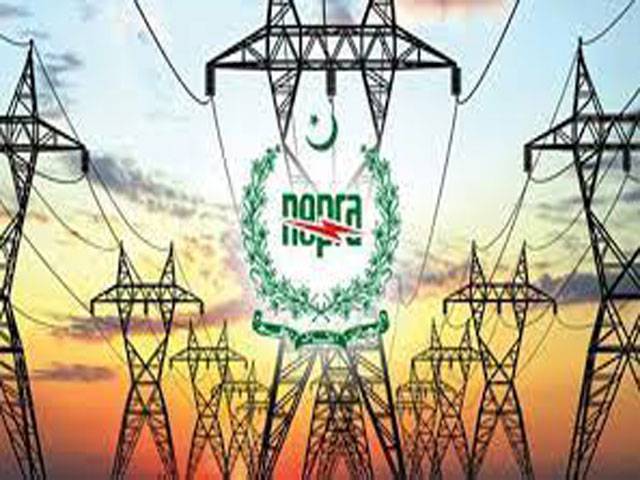Islamabad - The K-Electric consumers will pay an additional Rs7.22 billion in their December electricity bills after NEPRA has allowed the company to collect Rs3.7571 per unit on the account of Fuel Charge Adjustment for the month of September.
In its petition submitted to NEPRA on the basis of provisional data, K-Electric had sought an increase of Rs3.454 per unit in power tariff under fuel charges adjustments (FCA) for the month of September 2021. In a petition submitted to National Electric Power Regulatory Authority (NEPRA), under Multi Year Tariff 2017-23, KE has requested the regulator to allow the company to pass on the burden of Rs6.639b to the power consumers in its service area under monthly FCA for September 2021. However, later the demand for increase by KE had been upward revised on the basis of actual data.
On November 3, 2021, NEPRA had conducted public hearing on the KE petition. During the hearing, KE had submitted that at the time of submission of its FCA request, the authority’s approved fuel rate of XWDISCOs for the month of September 2021 was not available, thereof, K-Electric used the last available rate in its workings. K-Electric accordingly requested that the amount claimed on account of energy purchased from CPPA-G is subject to adjustment based on the FCA decision of the authority in the matter of XWDISCOs for September 2021. K-Electric also submitted that major reason for high FCA for September 2021, is due to increase in fuel prices of RLNG, RFO and Coal as compared to the reference month of June 2021. After hearing and going through the KE’s data, NEPRA has allowed an increase of Rs3.7571 per unit in power tariff and it will have an impact of Rs7.22 billion. According the NEPRA notification, the increase shall be applicable to all the consumer categories except lifeline consumers. It shall be shown separately in the consumers’ bills on the basis of units billed to the consumers in the respective month to which the adjustment pertains. K-Electric shall reflect the fuel charges adjustment in respect of September 2021, in the billing month of December 2021, said the notification. The authority observed that both KGTPS and SGTPS were not operated by K-Electric to their full capacities, and also less energy was withdrawn from efficient sources. Similarly, KCCPP was also operated on HSD. The authority also inquired from K-Electric regarding directions issued vide letter dated 16.09.2021, for making necessary arrangements for provision of gas at the required pressure at SGTPS and KGTPS power plants within 30 days and ensure that efficient plants are optimally utilised in future.
During the analysis, the main reason for EMO violation was observed to be “Less Drawl from NTDC/Simultaneous Operation of Expensive Plants”. It was observed the K-Electric had drawn lesser energy from NTDC during certain hours, without reducing generation from expensive plants connected to its network. Accordingly, the financial impact due to the EMO violation events with reference to lesser drawl from NTDC, wherein KE has failed to provide satisfactory response, amounts to Rs19.14 million. Accordingly, for the purpose of instant FCA of September 2021, an amount of Rs19.14 million has been withheld from the claim of K-Electric.
K-Electric in response stated that it has engaged the Ministry of Energy, Petroleum Division and Power Division, and a meeting has also been held with SSGC, wherein it has been suggested that legacy issues be set aside and going forward, the issues of gas pressure be resolved. K-Electric further submitted that a joint meeting is also being proposed for all the stakeholders involving NEPRA.
In written comments Karachi Chamber of Commerce and Industry (KCCI) said that K-Electric’s own generation is expensive as compared to power purchased from external sources as K-Electric generates energy from old and inefficient plants, which needs to be shut down. Power generation mix needs to be improved to reduce the tariffs, by shifting away from dollar pegged generation in favour of Solar, Wind and Hydel generation. For instance, the addition of K-Electric’s 900 MW RLNG based BQPS-III as well as renewable energy is estimated to reduce the cost of electricity. Consumers should not bear the burden of inefficiencies of DISCOs, imprudent energy policies, deplorable composition of energy mix and electricity thefts. The FCA should not be increased or if absolutely required, should be within Rs1.0/kWh and in future K-Electric should be barred from passing cost impact of inefficient power plants.
Saturday, April 20, 2024
NEPRA allows KE to increase Rs3.75 per unit under FCA

5:19 PM | April 19, 2024
Pak economy improving, funds will be provided on request: IMF
9:57 PM | April 19, 2024
Minister advocates for IT growth with public-private collaboration
9:57 PM | April 19, 2024
Judges' letter: IHC seeks suggestions from all judges
9:55 PM | April 19, 2024
Formula 1 returns to China for Round 5
9:05 PM | April 19, 2024
Germany head coach Julian Nagelsmann extends contract till 2026 World Cup
9:00 PM | April 19, 2024
A Tense Neighbourhood
April 19, 2024
Dubai Underwater
April 19, 2024
X Debate Continues
April 19, 2024
Hepatitis Challenge
April 18, 2024
IMF Predictions
April 18, 2024
Kite tragedy
April 19, 2024
Discipline dilemma
April 19, 2024
Urgent plea
April 19, 2024
Justice denied
April 18, 2024
AI dilemmas unveiled
April 18, 2024
ePaper - Nawaiwaqt
Advertisement
Nawaiwaqt Group | Copyright © 2024





